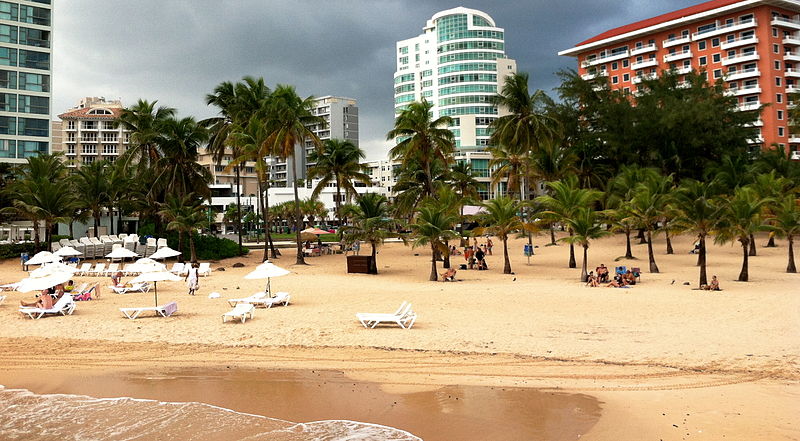The Puerto Rican economy is in deep trouble with a public debt of $72 billion and the government is scrambling for ways to bolster revenues and avert a calamity. One move to get quick cash saw Finance Minister Juan Zaragoza approve a measure last week that could cripple the casino tourism industry by allowing video lottery terminals (VLTs) to proliferate legally outside of the high class hotel venues that have traditionally been the home to slots and other games of chance. The move could let the Treasury reap as much as $400 million a year.
The Association of Hotels and Tourism of Puerto Rico (PRHTA) is not taking well to the idea and has filed a court motion contesting the new rules set to take effect in the first quarter of 2016.
According to Miguel Vega, Chairman of the Board of Directors of PRHTA, “Today we continue our efforts to defend the tourism industry in Puerto Rico. Enough is enough. Enough damage has already been done to the industry and we have to put a stop to it,” he said as quoted on G3Newswire.
Mr. Vega contends that the new regulations breach laws that specifically ban gaming machines not placed on casino floors. He also says that the Treasury department does not have the authority to authorize new types of games nor regulate them. VLTs do not meet the existing criteria for legal gaming machines due to several design differences in them compared to traditional slot machines.
According to Vega the move by Minister Zaragoza would gut the current tourism economy and destabilize current revenue streams jeopardizing as much as $148 million in casino revenue at a loss of $60 million to the Education Fund of the University of Puerto Rico. The U.S. Territory’s general fund could take a hit of as much a $9 million in slots revenues alone and the tourism board could lose as much as $23 million annually.
Illegal gaming machines located outside of casino have already caused a massive drop in revenues to the struggling territory with lax enforcement of local laws prohibiting them.
About two weeks ago the Condado Plaza casino closed in San Juan, taking with it the the jobs of about 150 people. The Radisson Ambassador casino, also in San Juan closed its doors in March of this year, along with two others in the last ten months. All told, as many as 5,000 jobs could be at risk.
Mr. Vega said, “This scenario in conjunction with video lottery terminals would mean the extinction of the casino industry and tourism in Puerto Rico. If these matters are not attended to urgently and the immediate seizure of illegal slot machines is begun then it will put at risk more than 70,000 jobs generated by tourism.”
The troubled territory has been mired in debt which has tripled in the last 15 years, and recently missed a bond payment. Their status as a U.S. Territory complicates the situation as local governments, municipalities, and public utilities cannot declare bankruptcy like their mainland counterparts such as the City of Detroit did. A debt restructuring plan was tossed out last year after bondholders sued. The White House has said there is no bailout being considered. A five year reform plan is expected to be submitted by the end of this month, but the government could still face lawsuits if it continues to miss debt payments like the $58 million bond tender missed earlier in August.



